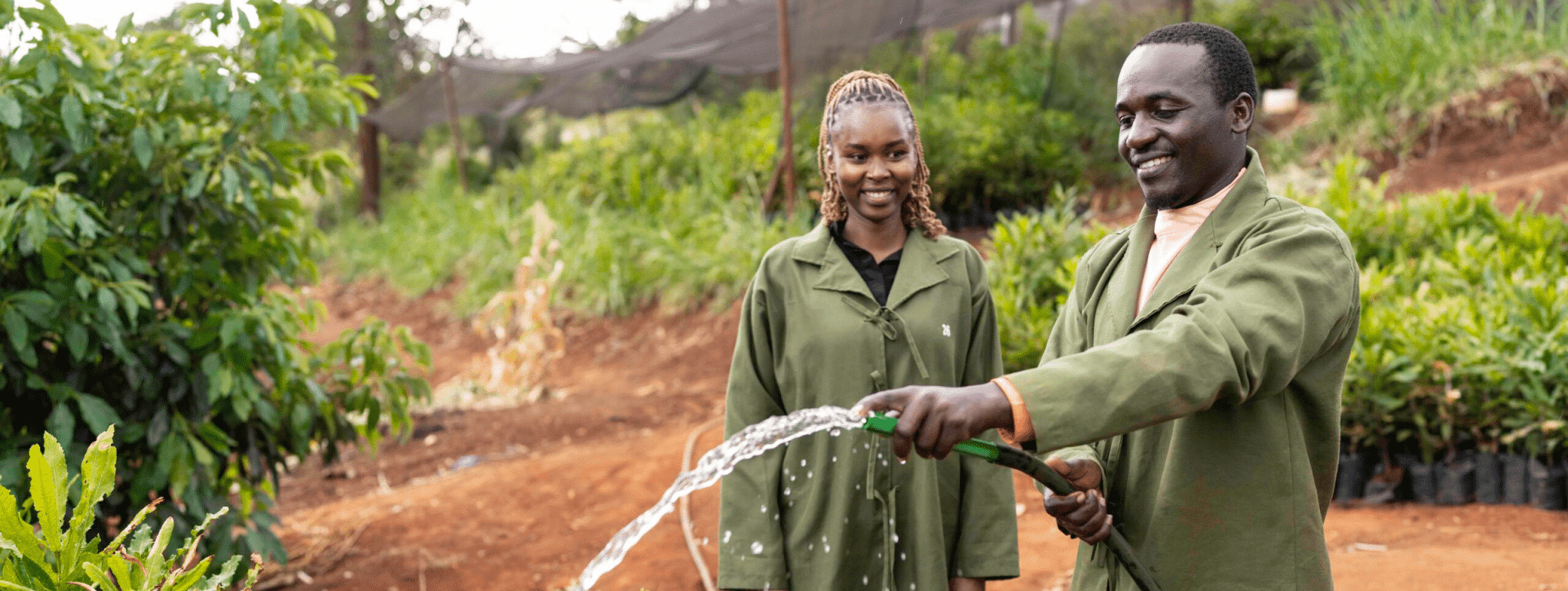
Climate Resilience Roadmap: Annual Report 2024
Empowering Agricultural Enterprises to Mitigate Climate Impact and Alleviate Rural Poverty
For more than 25 years, Root Capital has partnered with small and growing agricultural businesses (agri-SGBs) to grow the prosperity and resilience of smallholder farming communities who steward critical landscapes. Across these communities, agriculture is the foundation of daily life and economic opportunity. But this foundation is under pressure.
From unpredictable weather patterns to persistent market disruptions, farming communities are navigating a growing number of shocks. These disruptions threaten harvests, incomes, and livelihoods—especially for smallholder farmers who often lack the resources to absorb and adapt to change.
Agri-SGBs play a critical role in strengthening rural communities. They connect millions of farmers to the training, financing, and markets—what we call the “service bundle”—that allows producers to achieve prosperous farms and resilient households. When agriSGBs thrive, their networks of producers do, too.
In 2020, Root Capital launched our Climate Resilience Roadmap to help agri-SGBs lead the transition toward more regenerative and resilient agrifood systems. Now in 2025–the final year of our Roadmap–we continue to deliver targeted finance and advisory services that empower agricultural enterprises to invest in long-term resilience—on the farm, in their operations, and across entire landscapes.
In 2024, we supported 157 businesses representing 237,000 smallholder farmers, including 98,000 women, through tailored climate advisory and financing. These enterprises are scaling regenerative practices such as agroforestry, soil conservation, and organic pest and disease management. Others are investing in clean energy and zero-deforestation traceability systems that set the standard for sustainable supply chains.
Together, Root Capital and our agri-SGB partners are building the resilience of farmers and their communities. According to new data from an impact evaluation conducted in collaboration with 60 Decibels and the IKEA Foundation, 68% of farmers affiliated with Root Capital clients reported higher income as a result of that affiliation, and 64% of farmers reported greater capacity to recover from shocks. Among the businesses themselves, 80% said Root Capital increased their knowledge on how to prepare for future shocks.
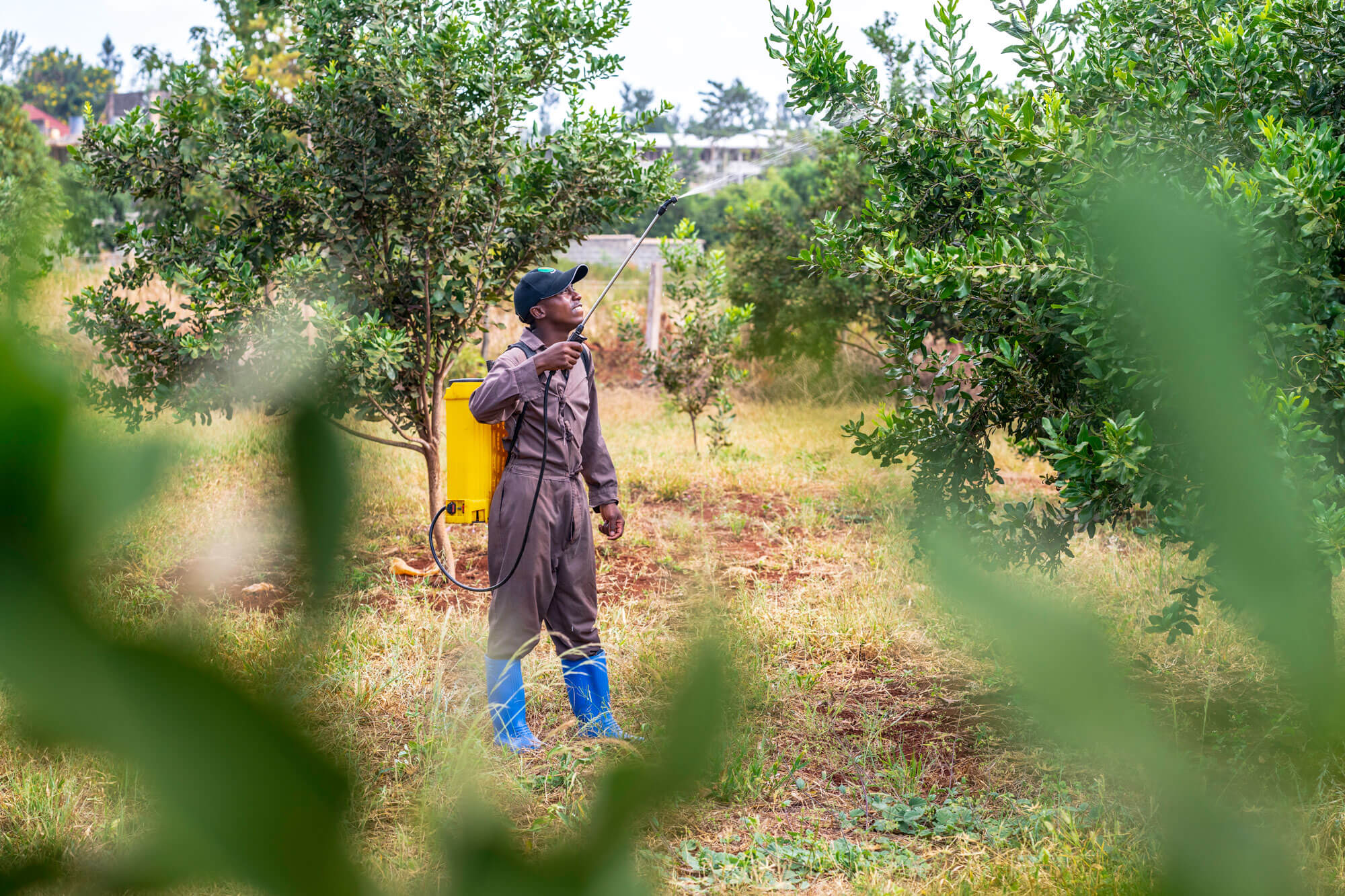
These results reinforce what we’ve known all along: locally rooted enterprises are engines of rural resilience. And by partnering with them, we can deliver meaningful, scalable solutions.
2024 by the Numbers
Progress Toward a More Regenerative, Resilient Future
$73.6M in climate finance disbursed to smallholder farming communities *total amount disbursed to Climate Action Leaders and through climate loans or grants
109 lending clients were Climate Action Leaders (81 Women Empowerment Leaders)
157 businesses received agronomic and climate resilience advisory services (75 Women Empowerment Leaders)
237K farmers and employees reached by businesses receiving Root Capital agronomic and climate resilience advisory (98K women)
Grow our lending to businesses committed to climate action in rural communities
Root Capital’s lending strategy continues to prioritize agricultural enterprises that are actively supporting climate action in rural economies. These businesses—often located in areas with limited infrastructure or market access—play a pivotal role in organizing first-mile farmer networks and providing producers with the information, inputs, and resources needed to invest in regenerative, resilient practices over the long term.
In 2024, Root Capital financed 109 Climate Action Leaders,
representing 51% of our total lending clients. Eighty-one Climate Action Leaders also met our criteria for significant involvement of women farmers, employees, and/or leaders. We provided over $71.5 million in credit to help these businesses sustain and expand practices such as agroforestry and reforestation across 250,000 hectares
in critical landscapes like the Tropical Andes and the Congo Basin.
Climate Action Leaders demonstrate how agricultural businesses can drive climate-smart development within these landscapes and contribute to the “Green Halo” effect, where sustainable crop production on the margins of protected areas supports the environmental health of critical ecosystems. Agroforestry crop production—practiced by the majority of Root Capital clients’ farmers—has a particularly strong Green Halo effect, as agroforestry farms integrate shade trees, fruit trees, and other habitats that enhance biodiversity. Most of our Climate Action Leaders also facilitate reforestation programs within their communities. With support from Root Capital, Climate Action Leaders have expanded their operations to reach 30% more farmers and hectares, helping producers adopt regenerative techniques that benefit farms, families, and ecosystems alike.
Rooted in Resilience: Women Farmers Leading Change in the Congo Basin
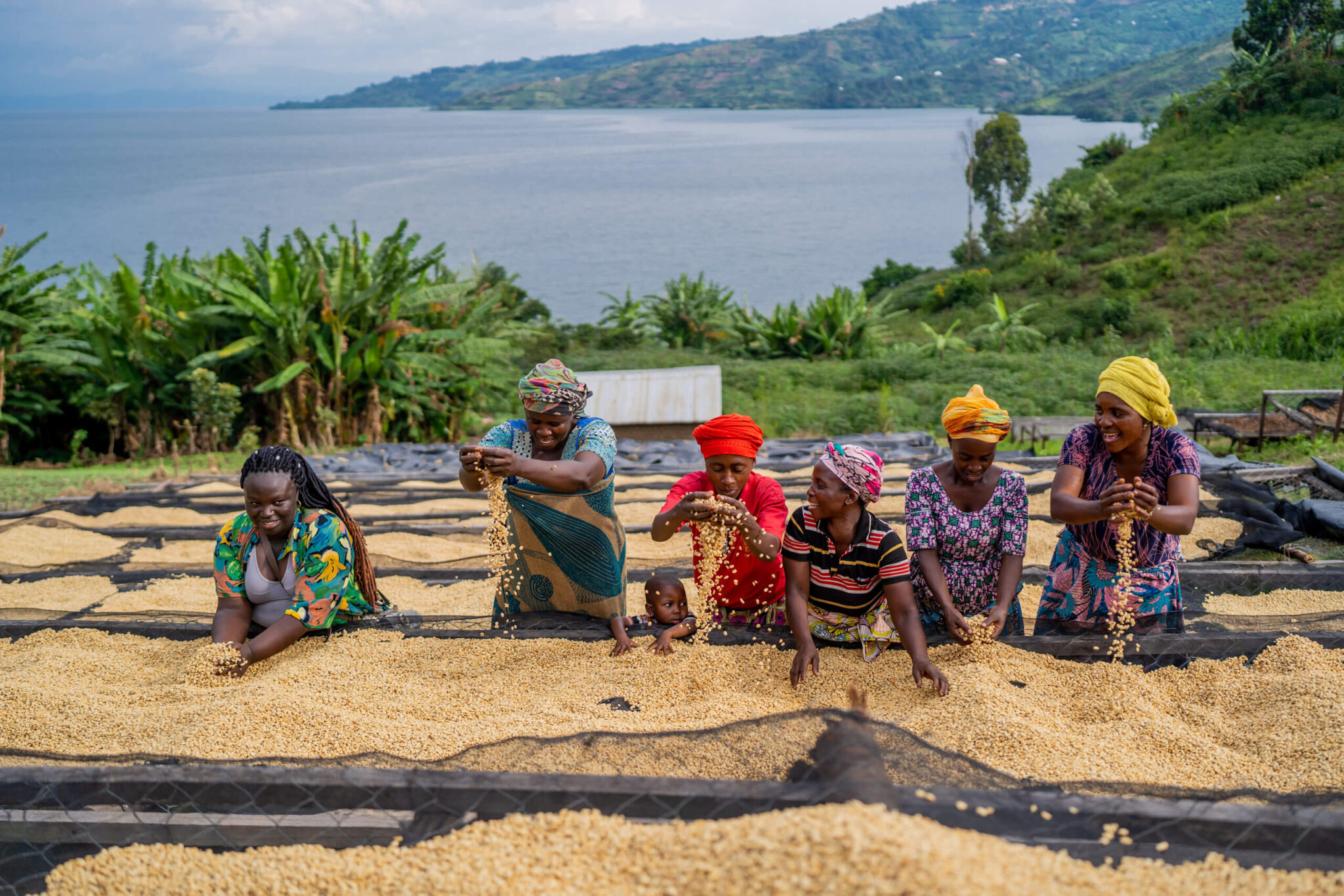
In the Democratic Republic of the Congo, on the remote island of Idjwi in Lake Kivu, Rebuild Women’s Hope Cooperative is one Climate Action Leader promoting regenerative agriculture. In 2024, the cooperative secured a loan from Root Capital to purchase coffee cherries from over 3,000 women farmers cultivating 1,700 hectares of land. In the midst of a continued violent regional conflict, where farmers lack income opportunities, the cooperative not only pays farmers premium prices but also champions environmental stewardship—especially important within the Congo Basin, home to the world’s second-largest rainforest and a global biodiversity hotspot.
Since 2022, Rebuild Women’s Hope has distributed more than 10,000 shade trees each year and promoted organic agroforestry coffee production that boosts biodiversity, builds healthier soils, and increases farm resilience to heat waves and droughts. Rebuild Women’s Hope is embedding long-term resilience across its network—proving that climate-smart practices and farmer prosperity go hand in hand.
Cultivate business and farmer capacity to mitigate and adapt to climate change
Through our Agronomic and Climate Resilience Advisory (ACRA) services, Root Capital partners with agricultural businesses to build the resilience of their operations and farmer networks. We deepen their capacity for long-term planning, data-driven decision-making, and proactive investment in regenerative practices.
In 2024, our ACRA services reached 157 businesses—the highest annual total to date—including 75 Women Employment Leaders—bringing the total number of ACRA-supported enterprises to 220 over the course of the Roadmap. These businesses, in turn, supported over 268,000 farmers and employees stewarding over 193,000 hectares of farmland across Africa, Asia, and Latin America.
A key focus of ACRA in 2024 was co-developing 64 business climate adaptation plans, each informed by farmer data from Root Capital digital business intelligence advisory and tailored to local climate risks. These plans serve as a blueprint for client investments in business and farmer resilience. Top investment areas included training for farmers on resilient farming practices, cultivation of more weather- or pest-tolerant crops for farmers, and support for farm diversification. Over 60% of resilience activities in adaptation plans co-designed with Root Capital were either new or significantly scaled up compared to prior years.
Business adaptation plans represent an important source of local investment in climate action, yet businesses’ ambitions are often constrained due to lack of financing. Root Capital’s resilience grants played a vital role in bringing climate adaptation plans to life, funding around 25% of plan investments on average. In some cases, these grants serve as a launchpad for future financing. In northern Peru, for example, our client Finca Churupampa used a resilience grant to launch “Fertifinca,” a facility producing organic fertilizer for coffee farmers. We are now discussing a loan to scale Fertifinca production to serve more farmers, demonstrating how early-stage grant funding can unlock scalable, credit-ready innovations.
In 2024, we also launched a new EUDR advisory pilot to help clients prepare for the European Union’s Deforestation Regulation (EUDR), set to take effect in late 2025. Our team provided:
-
Informational workshops to help clients understand regulation requirements
-
Technical assistance to support business geospatial data collection efforts
-
Access to the Satelligence deforestation monitoring application to provide clients with real-time deforestation alerts and compliance reports
As part of our EUDR Advisory, we created opportunities for peer-to-peer learning among our clients, who are developing innovative solutions to tackle shared challenges. For example, we convened a workshop with eight Root Capital clients in northern Peru, where businesses could discuss real-world challenges and solutions related to farm mapping, traceability, and digital producer footprints. Three Root Capital clients that had already exported their first EUDR-compliant zero-deforestation shipments shared their experiences with others, and the Root Capital team and participants co-developed a practical roadmap for EUDR compliance.
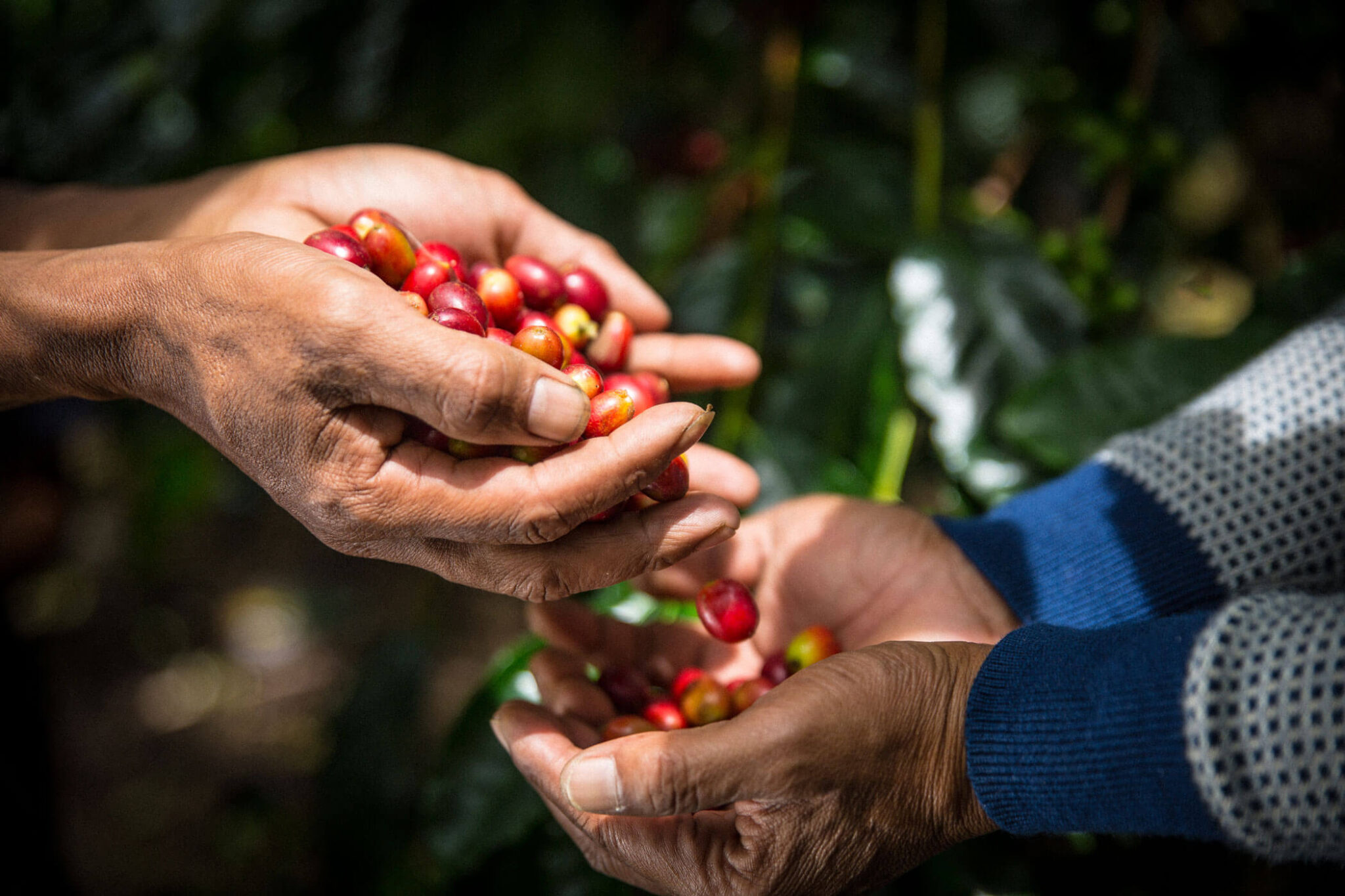
Case Study: Investing in Climate-Ready Coffee
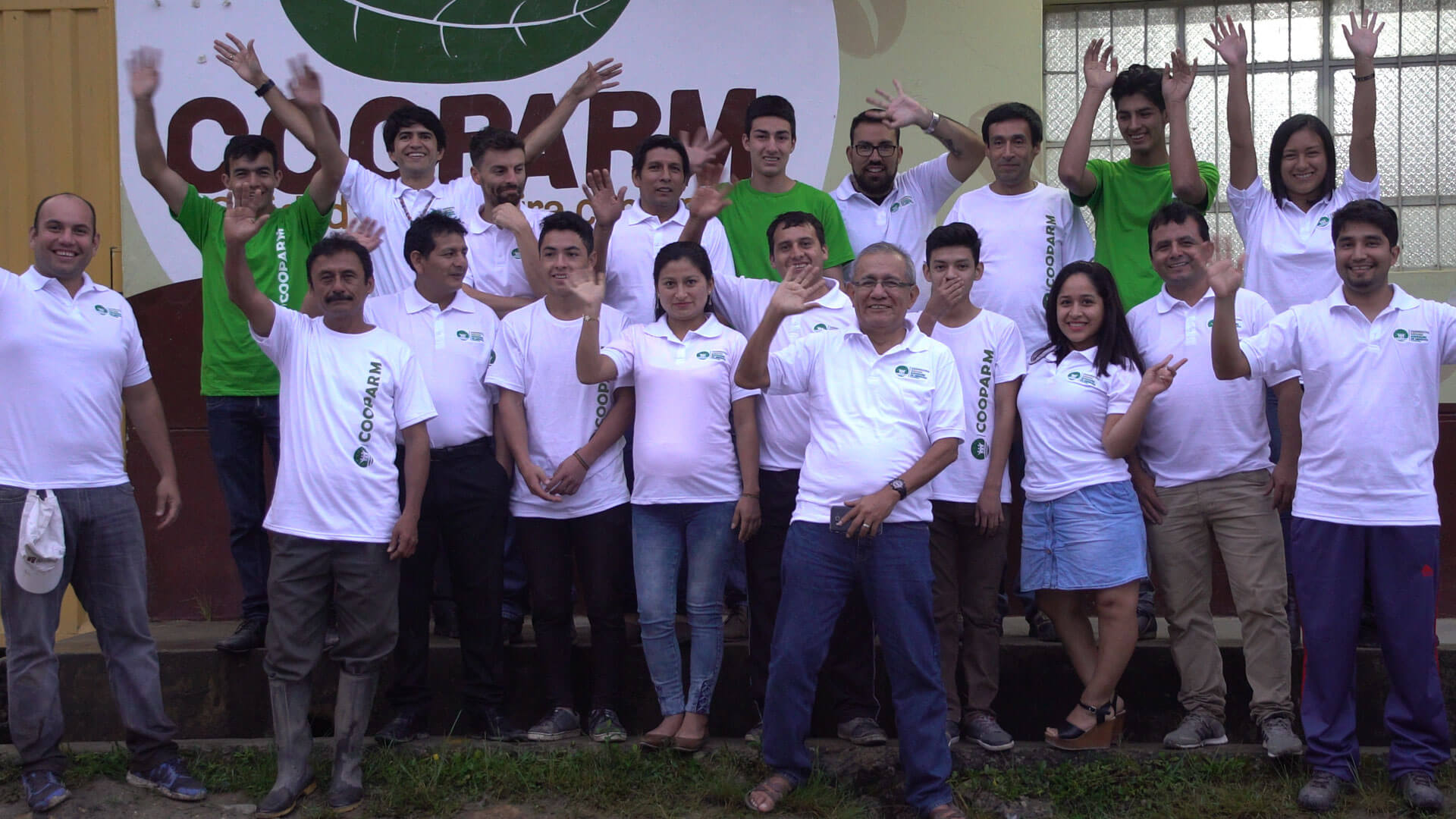
As growing seasons become more unpredictable and climate pressures intensify, coffee farmers around the world are confronting a hard truth: the varieties they’ve cultivated for decades may no longer be viable. Higher temperatures, prolonged dry periods, and increased pest and disease outbreaks are forcing communities to rethink what resilience looks like—starting from the seed.
To help farmers adapt, Root Capital is partnering with agricultural enterprises to help farmers transition to climate-resilient coffee varieties. Through Resilience Grants, Root Capital provides the flexible capital that businesses and farmers need to test new solutions without bearing all the risk.
In 2024, two Root Capital clients in Peru—Cooparm and Valle Verde de Rodríguez de Mendoza—used Resilience Grants to invest in a more climate-ready future for coffee farmers. Cooparm is establishing nurseries to produce pest- and disease-resistant coffee seedlings and shade trees, plus eight experimental demonstration plots to test the performance of these new varieties under local conditions. Together, these nurseries and demonstration plots will contribute to the cooperative’s broader effort to help farmers replant their coffee plots using resilient agroforestry management practices.
Meanwhile, Valle Verde is expanding climate finance for women producers. In 2024, the association received a $20,000 Root Capital resilience grant to scale an early-stage, $5,000 farmer financing fund. Valle Verde is now developing four tailored loan products to support on-farm adaptation, beginning with microloans for women farmers to renovate their plots with pest- and climate-resilient coffee varieties. This growing fund will not only improve access to financing for women members, but also serve as a lasting platform for inclusive, community-driven climate investment.
By providing targeted capital to unlock local experimentation, Root Capital and its partners are helping farming communities navigate the transition to more resilient cropping systems. These early investments are laying the foundation for a stronger, more climate-ready coffee sector—rooted in local knowledge and responsive to the challenges ahead.
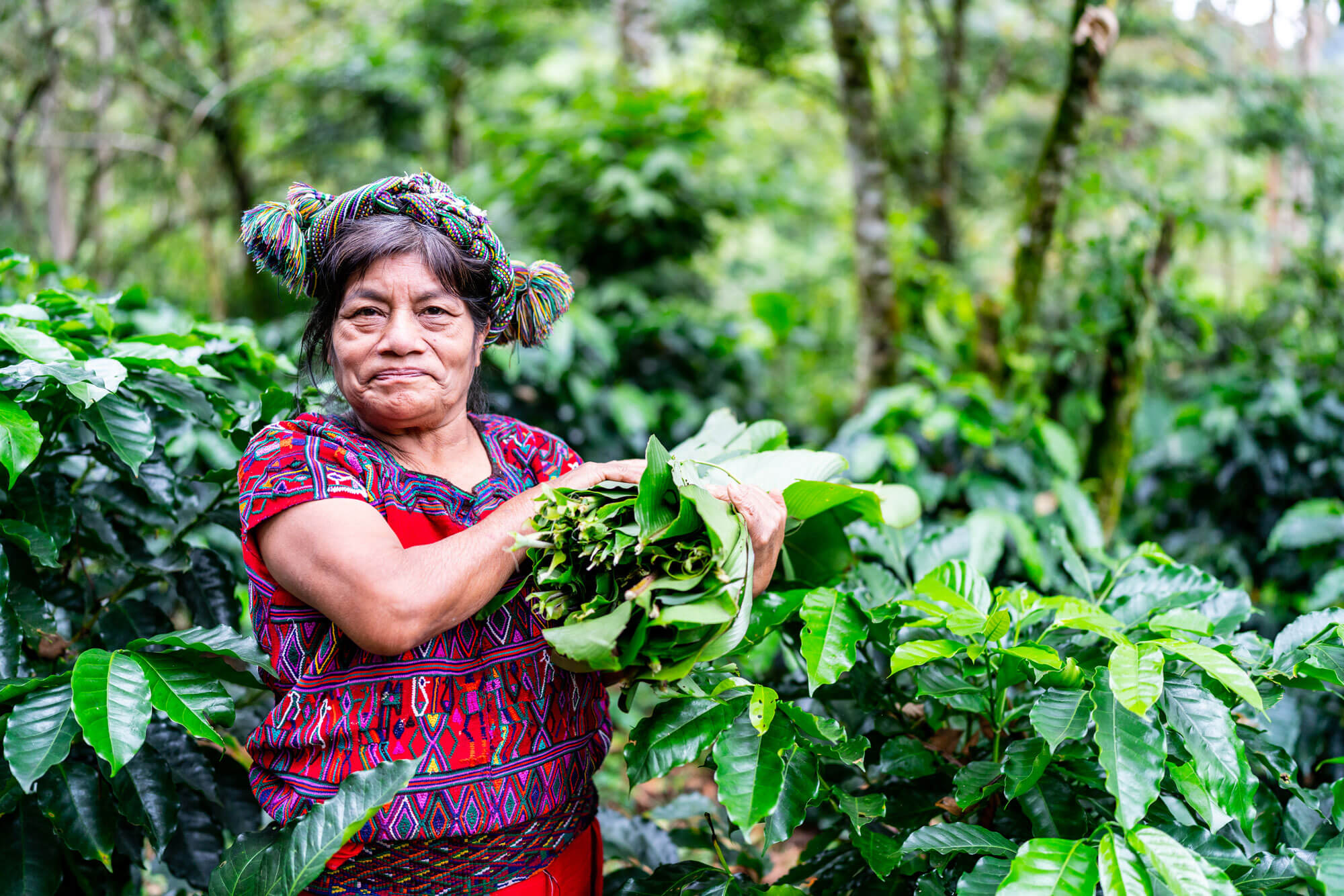 Cecilia Rivera Echel, a Mayan smallholder farmer in Chajul, Guatemala.
Cecilia Rivera Echel, a Mayan smallholder farmer in Chajul, Guatemala.
Innovate financial solutions to unlock business investments in climate action
Despite growing global recognition of the importance of regenerative agrifood systems, financing remains a critical bottleneck. Recent estimates suggest that the world needs to invest over $1 trillion annually to achieve resilient agrifood systems—yet less than 1% of global climate finance currently reaches smallholder farmers. Agri-SGBs are key partners in the effort to close the climate finance gap for smallholder agriculture. As businesses embedded in rural communities, with deep relationships with farmers and knowledge of local needs, agri-SGBs are uniquely positioned to channel climate finance to where it’s most needed. Root Capital is designing and deploying flexible climate finance tailored to the resilience needs of our agri-SGB partners and their farmer networks.
In 2024, we disbursed $2.1 million in climate finance to 22 clients across Latin America and East Africa. This included $1.9 million in loans and $210,000 in resilience grants, spread across the three resilience priorities below. Most of our climate loans went to farmers through farmer credit programs managed by our agri-SGB partners. Ultimately, our climate finance enabled over 8,600 farmers (including 2,600 women) to apply resilient practices on 2,300 hectares of farmland.
1. Resilient Soils
Root Capital financed organic or low-emissions fertilizers and soil amendments to restore soil fertility, structure, and ultimately resilience to shocks like droughts or downpours. Some examples include:
- In Mexico, INCAFESAM, a coffee cooperative, received a loan to finance producer investments in organic, agroforestry farming practices. Farmers are using these funds to apply organic compost, which improve both short-term yields and long-term soil structure. Farmers also used their loans to apply organic pest and disease control measures and to replant underperforming plots with disease-resistant coffee varietals, both of which improve overall farm productivity and resilience.
- In Guatemala, we provided a loan to the coffee cooperative FECCEG to scale production of organic fertilizer made from sugarcane waste, furthering its shift toward circular input systems. Producers often struggle to access enough organic inputs for their farms, so repurposing local agricultural byproducts ensures they have a reliable, circular alternative that improves soil health and reduces dependence on external fertilizers.
2. Resilient Crops
Root Capital financed clients’ production of improved planting material for farmers, who used the new seeds or seedlings to increase farm productivity and resilience to climate shocks. Examples include:
- In Kenya, three macadamia businesses received resilience grants to increase their production of resilient seedlings. The grants will finance over 35,000 macadamia and fruit tree seedlings for over 3,000 macadamia farmers, who should see higher incomes in the future from more productive, more diversified farms.
- In Peru, we provided a resilience grant to the coffee cooperative Cooparm to establish nurseries for pest- and disease-resistant coffee varieties and for shade trees, as well as eight demonstration plots showcasing the new varieties to farmers.
3. Resilient Businesses
Root Capital financed clean energy systems and improved processing infrastructure for clients, improving businesses’ resilience to weather events and energy outages while reducing their environmental footprint. Examples include:
- In Kenya, Root Capital financed a solar energy system for the macadamia processor Batian. The solar panels will lower the business’ operational costs and carbon emissions, while increasing energy reliability and business resilience to energy outages.
- In Peru and Rwanda, Root Capital financed solar coffee drying infrastructure for six clients. Solar dryers can reduce post-harvest losses due to unseasonal rains by two to five percent, protecting income for farmers and revenue for supply chain partners.
Insights from 2024:
- Resilience Requires Customization—and Agility. Climate investment needs vary by context, shaped by local risks, crop systems, and adaptation opportunities. And as environmental conditions shift, resilience solutions must also evolve. Root Capital’s approach to climate finance is built not only on tailoring support to local priorities—such as organic fertilizer production in South America and solar energy in East Africa—but also on deep listening and adaptability. In the past year, for example, we began receiving requests to finance irrigation systems for coffee and cocoa—a signal of how longer and more frequent droughts are affecting farmer yields and income. Resilience is not static; it requires businesses to stay nimble, responsive, and rooted in the lived experiences of the communities they serve.
- Agri-SGBs Are Gateways to Farmer-Level Finance. In 2024, Root Capital worked with our agri-SGB partners to finance the application of resilient practices by 8,600 farmers stewarding 2,300 hectares—with most loans averaging under $1,000 per hectare. These results highlight the power of agri-SGBs to aggregate climate finance and deploy it at the farm level in ways that are both efficient and context-specific. Rather than designing a one-size-fits-all solution, Root Capital works through cooperatives and enterprises that already understand their farmers’ priorities. Whether it’s agroforestry shade management in Mexico or organic pest management in Nicaragua, agri-SGBs help translate broad investment goals into local, tailored action—delivering impact where it matters most.
- The Business Case Still Needs Proof. Even after introducing lower interest rates for our climate loans last year, client uptake remains lower than expected. Beyond ongoing market shocks and limited financial headroom, many clients cited uncertainty about the return on investment of specific climate solutions as a barrier to borrowing. In 2025, we plan to build the local business case for resilience investments by partnering with climate solution providers to conduct on-farm trials, generate localized data, and grow demand.
Amplify learning to encourage adoption and replication by others
Root Capital’s commitment to building resilient rural economies extends beyond our portfolio. As a field builder, we aim to accelerate progress by sharing what works—and what doesn’t—so others can learn, adapt, and invest more effectively in regenerative agriculture. In 2024, we engaged in global conversations around financing resilience, with a focus on practical models and tools that serve the needs of smallholder communities.
Highlights from the Year:
Featured in Major Sector Reports
Root Capital’s approach was spotlighted in a number of influential publications, including the ISF Advisors and AgFunder report on financing pathways for smallholder adaptation and the IIED “Business Unusual” report, which profiled pioneering models at the intersection of rural enterprise, nature, and livelihoods.
Driving Dialogue at Global Forums
At events like New York Climate Week, the coffee&climate symposium (“It’s Bean Too Hot”), and sessions with the ClimateShot Investor Coalition (CLIC), we shared case studies on how farmer-allied businesses are leading regenerative transitions—and what they need from capital partners to go further.
Through our collaboration with CLIC, we shared how to integrate a gender lens into technical investment in clean energy and agroforestry—showcasing Root Capital’s dual commitment to social impact and environmental resilience.
EUDR as a Real-Time Test Case
Our work helping clients prepare for the EU’s Deforestation Regulation (EUDR) has offered insights into the real costs and opportunities of building regenerative, resilient supply chains. We shared learnings in op-eds (including via the CASH Coalition) and interviews with platforms like Bloomberg and Thin Ink—emphasizing the need to work directly with local farming communities to transform supply chains while protecting producer livelihoods.
Across these forums, our message remained consistent: locally grounded agricultural enterprises are central to the success of global climate and development goals. Yet they remain significantly underfinanced. By amplifying what we’ve learned over 25 years of partnership with these enterprises, we aim to shift capital flows and accelerate practical solutions guided by the voices and needs of those on the ground.
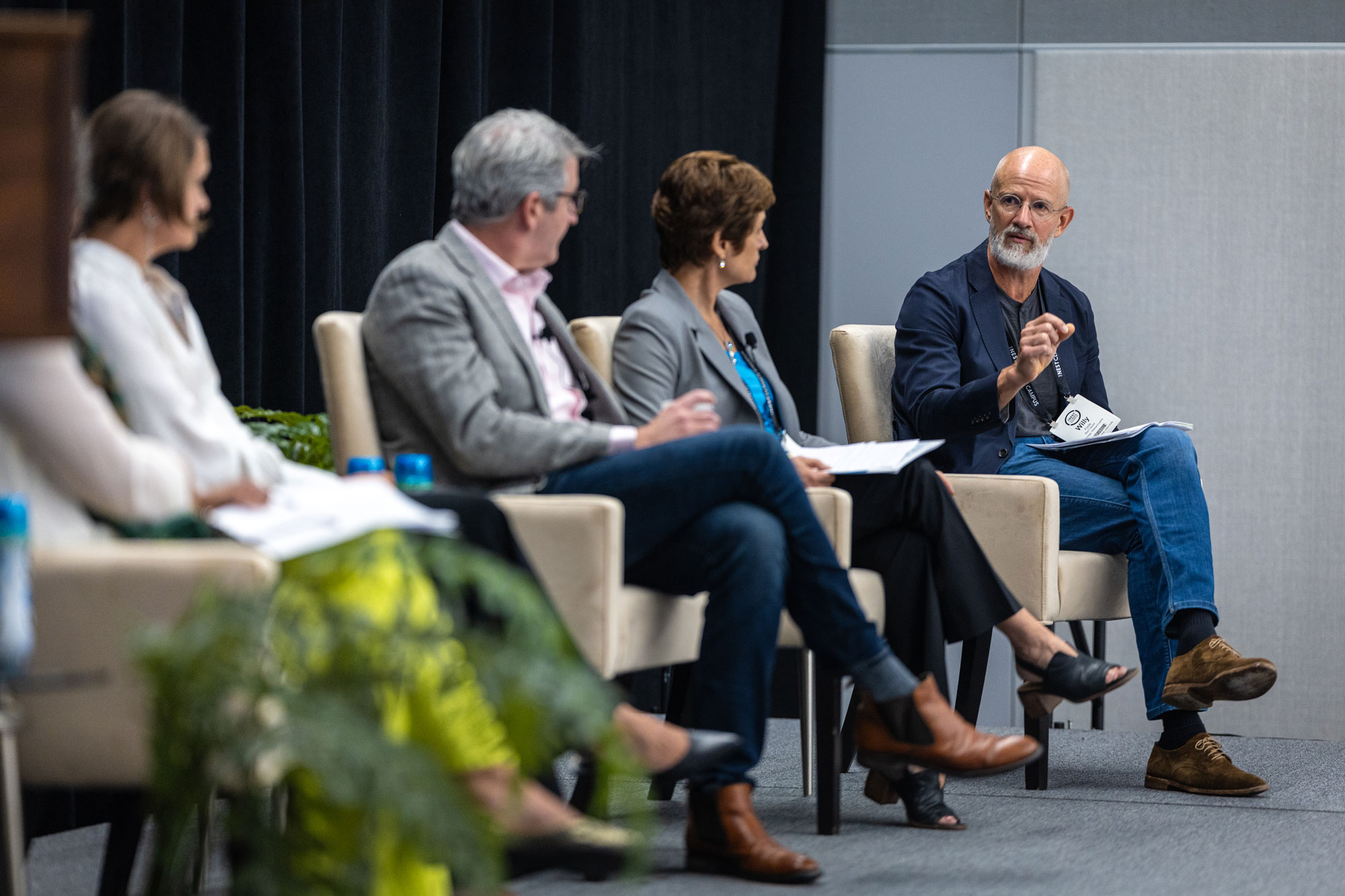 Willy Foote, Root Capital Founder and CEO, speaks about climate financing for coffee farmers at a Climate Week panel.
Willy Foote, Root Capital Founder and CEO, speaks about climate financing for coffee farmers at a Climate Week panel.

As we enter the final year of our Climate Resilience Roadmap, we are proud of our work to build the resilience of rural communities alongside our agri-SGB partners. But we know the work is far from done. In 2025, Root Capital will continue providing advisory services and capital to drive local climate action, while exploring new innovations and partnerships to expand impact and fund the next chapter of rural resilience. Thank you to our growing community of dedicated climate funders for making this work possible. With special thanks to:
- Gordon and Llura Gund Foundation
- Grant & Lara Gund Foundation
- IKEA Foundation
- Keurig Dr Pepper
- Swiss Re Foundation
- Trafigura Foundation
- United States Agency for
International Development - Vitol Foundation
- Waverley Street Foundation
Click HERE to download a pdf copy of this report.
